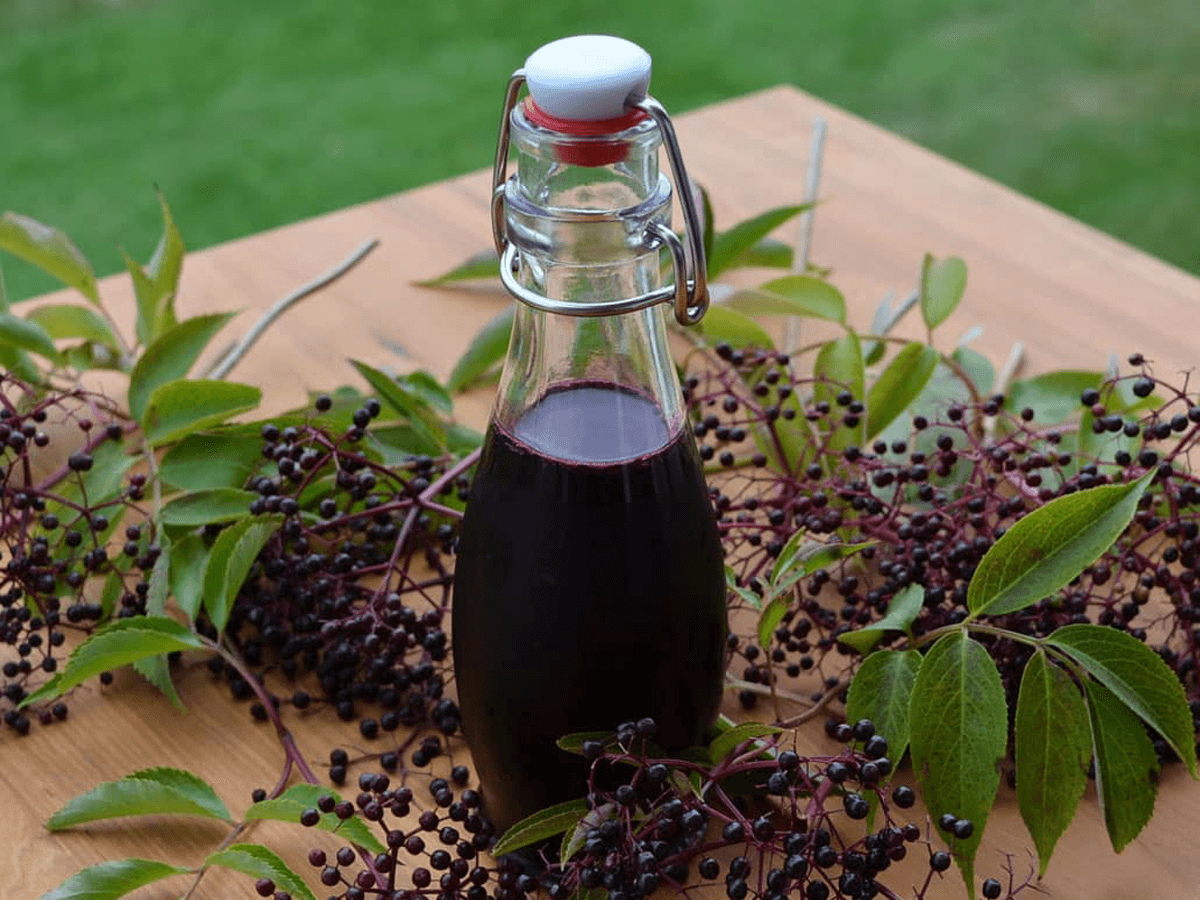Elderberry juice, a vibrant, nutrient-packed elixir, has been revered through the ages for its remarkable health benefits. Derived from the dark purple berries of the elder tree, this juice is not only a delight to the palate but also a powerhouse of antioxidants, vitamins, and minerals. In this article, we’ll dive deep into the world of elderberry juice, exploring its myriad benefits, nutritional profile, and how it can be a game-changer in your health regimen.
Historical Uses of Elderberry juice
Simple Homemade Elderberry Juice recipe
Nutritional Profile of Elderberry Juice
Elderberry juice, derived from the small, dark berries of the Sambucus tree, is not only known for its rich, tart flavor but also for its impressive nutritional profile. This juice is packed with vitamins, minerals, and antioxidants, making it a popular choice for those looking to boost their health. Here’s a detailed look at the nutritional benefits of elderberry juice.
Vitamins and Minerals
This juice is a good source of essential vitamins and minerals, including:
- Vitamin C: Known for its immune-boosting properties, vitamin C is vital for the growth, development, and repair of all body tissues. It’s also an important antioxidant that helps protect cells against oxidative stress.
- Dietary Fiber: While juice typically has less fiber than whole fruits, elderberry juice still contributes to your daily intake, promoting digestive health.
- Vitamin A: Important for maintaining healthy vision, skin, and the immune system.
- Iron: Essential for the formation of red blood cells and transport of oxygen throughout the body.
- Potassium: Helps regulate fluid balance, muscle contractions, and nerve signals.
Antioxidants
Elderberry juice is rich in antioxidants, which are compounds that help fight oxidative stress and may protect against chronic disease. These include:
- Anthocyanins: The compounds that give elderberries their characteristic dark color, anthocyanins are powerful antioxidants with anti-inflammatory effects.
- Quercetin: Known for its antioxidant and anti-inflammatory properties, quercetin can help reduce blood pressure and improve heart health.
- Flavonoids: With various health benefits, flavonoids support heart health and may have anti-cancer properties.
Health Benefits of Elderberry juice
The nutritional components of elderberry juice contribute to several health benefits:
- Immune Support: The high vitamin C content, along with other antioxidants, helps support the immune system, making it potentially effective in fighting off colds and flu.
- Anti-inflammatory Effects: Antioxidants like anthocyanins and quercetin can help reduce inflammation, potentially alleviating symptoms of arthritis and other inflammatory conditions.
- Heart Health: The flavonoids in elderberry juice may help reduce the risk of heart disease by improving blood pressure, reducing cholesterol, and protecting against oxidative stress.
- Digestive Health: Although juice has less fiber than whole fruits, the fiber present in elderberry juice can help promote healthy digestion and prevent constipation.
While elderberry juice is nutritious, it’s important to consume it in moderation due to its high sugar content. Additionally, raw elderberries, their leaves, stems, and seeds contain substances that can be toxic if ingested in large quantities, so it’s crucial to consume elderberries in their processed form, such as in juice, syrups, or supplements. Incorporating this juice into your diet can be a delicious way to boost your intake of essential nutrients and antioxidants, contributing to overall health and well-being. However, as with any supplement or dietary addition, it’s wise to enjoy this juice in moderation and be mindful of its sugar content.
Health Benefits of Elderberry Juice
Comparing Elderberry Juice to Other Superfoods
Elderberry Juice: Conclusion
In conclusion, elderberry juice emerges as a potent superfood, distinguished by its rich nutritional profile, myriad health benefits, and versatile culinary applications. Its high concentrations of vitamin C, dietary fiber, and powerful antioxidants, such as anthocyanins, position elderberry juice as a formidable ally in promoting overall health and wellness.
